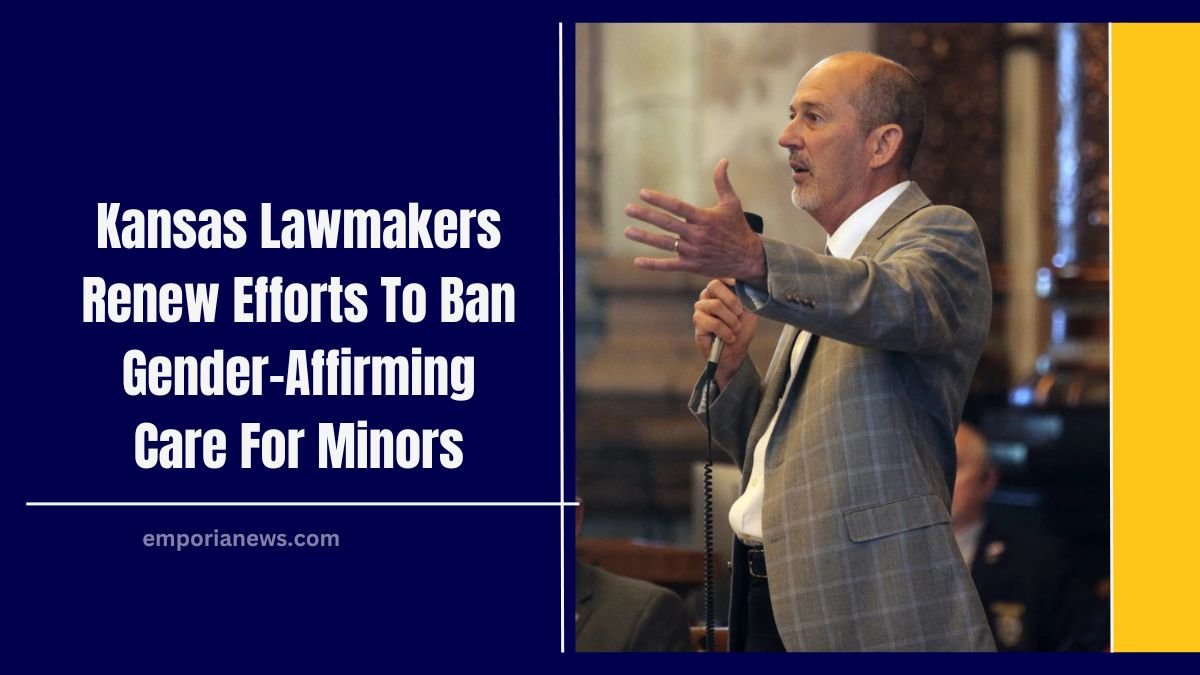In a renewed legislative push, Kansas lawmakers are once again attempting to prohibit gender-affirming care for minors, encompassing treatments such as puberty blockers, hormone therapies, and gender-affirming surgeries. This initiative follows previous unsuccessful attempts to enact similar bans.
Proposed Legislation Details
The current proposal seeks to:
- Prohibit the administration of puberty blockers, hormone treatments, and gender-affirming surgeries to individuals under 18.
- Restrict the use of state funds for these medical procedures.
- Forbid state agencies and employees from promoting gender-affirming care for minors.
Notably, while gender-affirming surgeries for minors are exceedingly rare, the legislation would still impose a ban on such procedures.
Rationale Behind the Ban
Proponents of the ban argue that minors lack the maturity to make irreversible medical decisions. They contend that the legislation serves to protect children, emphasizing that individuals can access gender-affirming treatments upon reaching adulthood.
As Senator Beverly Gossage, a Republican from Eudora, stated, “We want these children to get the caring mental therapy that they need. We often pass bills in this Legislature to protect Kansans. We’re on the right side of history on this.”
Opposition and Advocacy
Opponents, including medical professionals and LGBTQ+ advocates, assert that gender-affirming care is essential and often life-saving for transgender youth.
They highlight that such care has been shown to reduce rates of depression and suicide among transgender minors.
Anthony Alvarez, who began his transition at 16 in Kansas, shared his experience: “Receiving gender-affirming care as a minor were lifesaving interventions that allowed me to begin my adult life.”
Medical Community’s Perspective
Leading medical organizations, including the American Medical Association and the American Academy of Pediatrics, support access to gender-affirming care for minors. They warn that denying such care can lead to adverse mental health outcomes.
Legislative Outlook
The bill is a priority for Kansas Republicans, who have scheduled hearings in both the House and Senate. While similar legislation has been vetoed by Governor Laura Kelly in the past, the current Republican supermajority may have the numbers to override a veto.
However, previous attempts have seen some Republicans join Democrats in opposing the ban, leaving the outcome uncertain.
Potential Legal Challenges
If enacted, the legislation could face legal challenges. The American Civil Liberties Union of Kansas argues that such a ban would violate constitutional rights to personal autonomy, referencing a Kansas Supreme Court ruling affirming bodily autonomy in the context of abortion rights.
| Aspect | Details |
|---|---|
| Prohibited Treatments | Puberty blockers, hormone therapies, gender-affirming surgeries |
| Use of State Funds | Bans allocation of state funds for gender-affirming procedures for minors |
| State Promotion | Prohibits state agencies and employees from promoting such care |
| Implementation Timeline | Ban would take effect in 2026, allowing time for current patients to adjust |
| Legislative Status | Hearings scheduled; potential for veto override by Republican supermajority |
| Legal Considerations | Possible constitutional challenges based on personal autonomy rights |
As Kansas revisits the contentious issue of banning gender-affirming care for minors, the debate underscores the tension between legislative actions and medical guidance.
The outcome will significantly impact transgender youth in the state, highlighting the ongoing national discourse on transgender rights and healthcare access.




